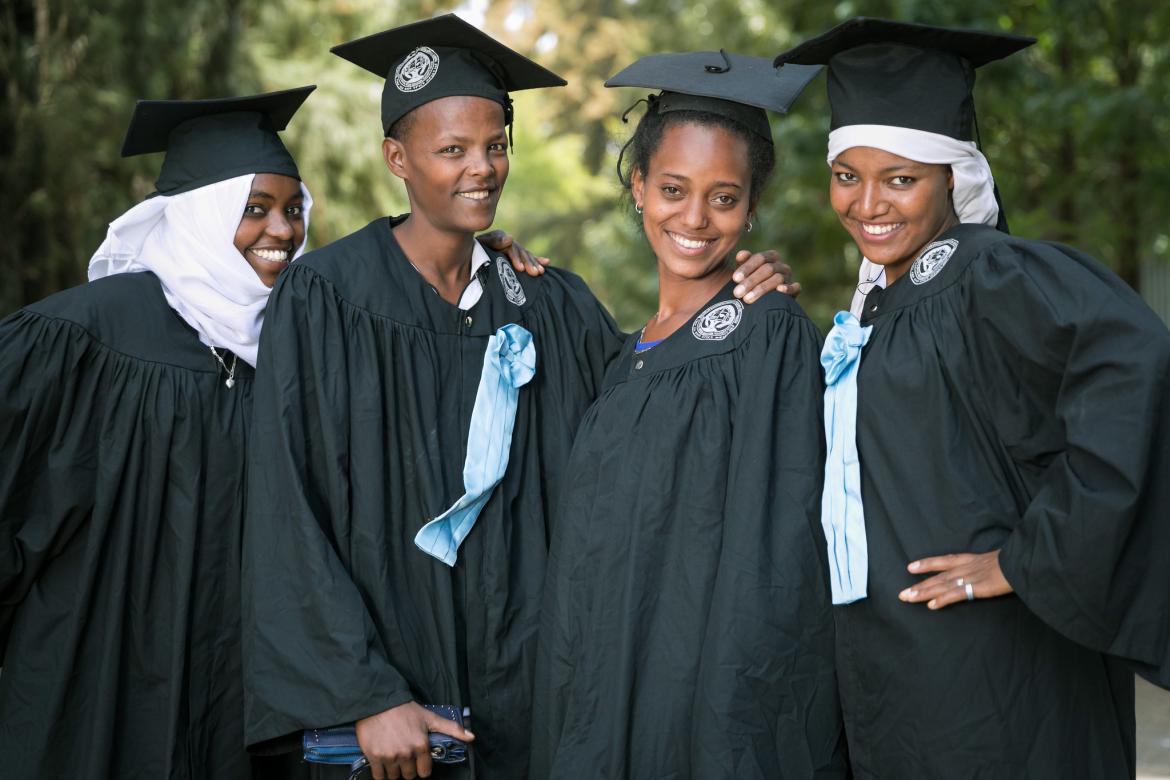
The International Women’s Day 2020 theme is “I am Generation Equality: Realizing Women’s Rights.”
This theme is aligned with the UN Women’s new multi generational campaign, Generation Equality, which marks the 25th anniversary of the Beijing Declaration and Platform for Action.
Taking stock of the Beijing Platform for Action
In 2020, with the passage of a generation, the need arises for assessing the Beijing Platform for Action. Launched in 1995, the Platform targeted 12 critical areas (poverty, education and training, etc.), identified to remove the obstacles to equal participation by women in various spheres of public and private life.
Currently, and despite progress, legal restrictions have prevented 2.7 billion women from exercising the same employment choices as men.
In 2019, fewer than 25% of lawmakers were women and one in three women still experienced gender-based violence.
Furthermore, no country can claim to have achieved gender equality, particularly in education systems.
In the education sector, gender equality is understood as:
Same opportunities in terms of access, retention and choices for girls and boys.
Gender parity for teachers and administrators at all levels of the education system (leadership, governance and in the operational and finance areas).
Reversing the trend through education
Women are still undervalued and continue to work more, earn less, and to be underrepresented in leadership positions.
Achieving positive change in these areas must not be limited to the identification of inequalities. Instead, it requires:
Reexamining how inequality is experienced in households, organizations and communities, as a result of the design and structure of different societal systems.
Undertaking gender-trans-formative research conducive to women’s empowerment, through the shared control of resources and joint decision making. This research calls for a complex mix of competencies, skills and expertise.
In the education sector for example, the gap remains wider in science and technology. Girls need to be trained to participate in national development. While they are now a majority in higher education, they remain underrepresented in scientific and technological training.
In Senegal for example, girls account for more than 50% of higher education students. Although parity has been surpassed in the student population, this is not the case in the area of scientific and technological training. Far from it.
Based on Ministry of Higher Education data, only 40% of students in these fields are girls.
Parity in school attendance and completion is a recent phenomenon in Africa. As a result, the current pool of working women comprises women who were able to attend school in an era when the level of education of girls was much lower.
This finding is fairly common—there is a global crisis with respect to the teaching of science, technology, engineering and math (STEM), reflected in a lack of interest on the part of young people in fields that are known to support job creation and economic growth.
Make science attractive to everyone
On a global scale, women are less likely than men to pursue scientific studies and more likely to abandon studies in this field. This is in part attributable to the fact that fewer women than men choose these studies, but also to the composition of the working population.
The profile of students and professionals in science fields will not change rapidly, as this depends on both the quantitative and qualitative aspects of education.
The reasons why fewer women gravitate toward science are complex and still require detailed and context-specific analysis.
Once each country has conducted this self-assessment, it will have to draw on different individual, community and societal support mechanisms.
Individual perception and feelings of personal efficacy are decisive factors. We must change this paradigm, as the distribution of roles in our society continues to be highly gender based.
After the birth of a child, it is the mother who, in the vast majority of cases, scales back her professional work to assume responsibility for most domestic tasks. This value, inculcated at a very young age, has already played a role in steering young girls toward supposedly female-oriented games and, later, educational fields.
How can women thrive in scientific disciplines?
We must create an enabling environment based on a multisectoral approach in order to:
Allow girls, at an early age, to gain concrete experience during their studies and make them aware of the success stories of women working in these fields.
Take early action on all fronts to boost girls’ self-confidence and achieve a meaningful increase in their numbers in scientific fields.
Expand opportunities for awareness and networking among stakeholders to promote girls’ access to STEM.
Identify and develop a network of mentors (for example in the career, industrial, and scientific fields) among partner enterprises to coach young women (students or female entrepreneurs).
Develop a network of partner enterprises, in particular female-run enterprises, thus providing women with an opportunity to gain professional experience and develop their skills.
Senegal is actively involved in this process through the Miss Science and Miss Math competitions, starting in lower secondary school. At the higher education level, the Support Program for the Promotion of Female Research Professors in Senegal [Programme d’appui à la promotion des enseignantes chercheures du Sénégal PAPES] was launched in 2013 and is exclusively dedicated to female research professors and researchers, to promote and encourage the entry and retention of women in research.
Girls and women need to thrive in scientific disciplines and contribute to innovation, which is so important to the world.
As the saying goes, “when you educate a woman, you educate a nation”.
Credit: Globalpartnership





